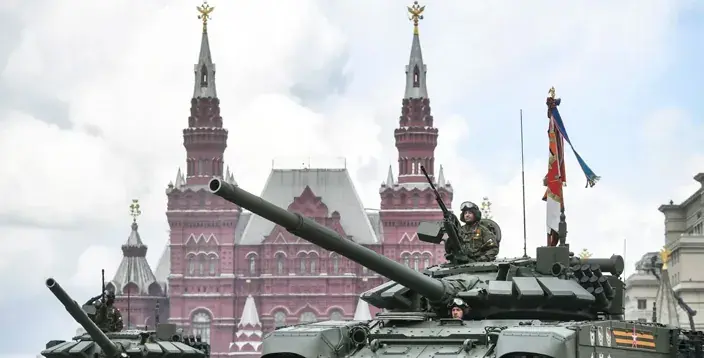Factories of Russian billionaires secretly supply chemicals to the Russian military industry - Reuters
Kyiv • UNN
Five chemical companies owned by Russian billionaires under sanctions provide 75% of the supplies for Russian explosives factories. Reuters uncovered the supply chain by analyzing railroad cargo.

Chemical plants founded or owned by some of the richest people in Russia supply ingredients to factories that produce explosives used by the Russian military in the war against Ukraine. This was reported by Reuters and UNN .
Details
Reuters has identified five chemical companies that supplied more than 75% of the key chemicals for Russia's largest explosives factories from the start of the full-scale war until September of this year, all of which are owned by five billionaires under Western sanctions.
The analysis shows for the first time how much the factories that make up part of Russia's military machine depend on these people and their companies, Reuters notes.
Among the billionaires are Roman Abramovich, the former owner of the Chelsea football club, and Vagit Alekperov, who was recognized by Forbes in April as Russia's richest man with an estimated $28.6 billion.
Evraz, a London-based company in which Ambramovich owns a 28% stake, said it supplied the chemicals “only for civilian use.” Lukoil, the oil refining company in which Alekperov has a stake, said it “does not produce explosives or any related components.
To determine where Russia's major munitions factories received their supplies, Reuters analyzed the movement of more than 600,000 railroad cargoes carrying chemicals needed to make explosives from the time of the invasion of Ukraine in February 2022 to September 2024.
The data showed that the billionaires' companies supplied vital ingredients to five explosives and gunpowder factories in Russia that are subject to Western sanctions. These factories are subsidiaries of Rostec, Russia's giant state-owned arms manufacturer and automaker.
According to Reuters, four chemical companies were suppliers to four explosives manufacturers.
According to several experts, this analysis is new evidence that the West's strategy of imposing sanctions on Russia as punishment for its invasion of Ukraine has failed to stop its military production.
While the billionaires themselves are under Western sanctions, the chemical companies in question have largely avoided large financial penalties or bans on imports of critical goods from the United States or the European Union.
Most of the products of these chemical plants are civilian goods, such as fertilizers, which are crucial for agriculture. Longstanding Western policy has been to exempt food from sanctions to prevent famine and diplomatic backlash from developing countries.
The five munitions plants supplied by billionaire companies include the large Sverdlov plant in Dzerzhinsk. According to a Ukrainian intelligence official, this plant is Russia's only producer of HMX and RDX plastic explosives, which are used in artillery and rockets.
According to the railroad, Sverdlov is supplied with chemicals by two plants of the Eurochem company founded by Russian billionaire Andrey Melnichenko.
“EuroChem is one of the world's largest mineral fertilizer producers. Its Nevinnomysskiy Nitrogen plant in southwestern Russia sent at least 38,000 metric tons of acetic acid to Sverdlovsk during the war in Ukraine, according to a Reuters analysis of railroad data.
EuroChem's second plant, Novomoskovskiy Azot, shipped about 5,000 tons of nitric acid to Sverdlovsk over the same period, according to the railroad.
Both acetic and nitric acids are used to produce HMX and RDX.
According to Reuters' calculations based on scientific literature and verified by an explosives expert, 5,000 tons of nitric acid can produce 3,000 tons of RDX, enough to fill 500,000 large-caliber artillery shells.
Tax invoices reviewed by Reuters confirmed that Eurochem was Sverdlov's supplier last year.